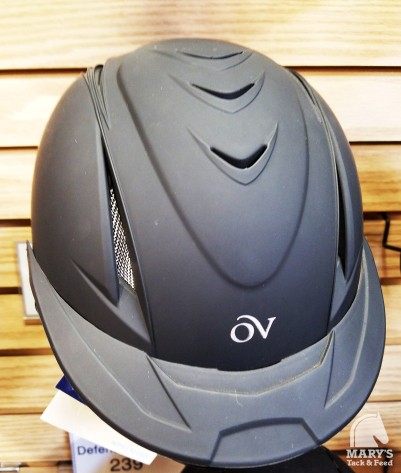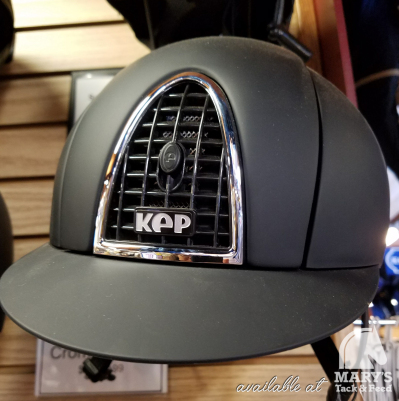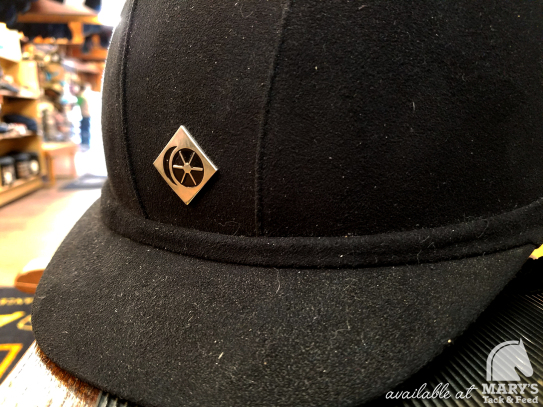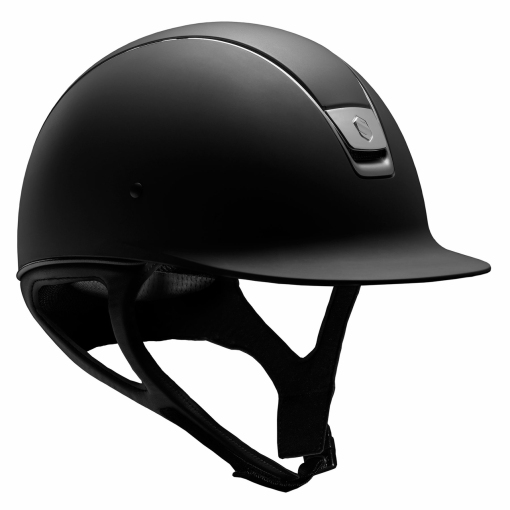Helmet Certifications, or What Do All Those Letters & Numbers Mean?
27th Mar 2018
Horseback riders are urged or required to have a certified equestrian helmet. They all have a string of numbers and letters signifying the safety standards and certifications. ASTM F1163:04a, SEI, PAS015:2011 - But what do they mean?
First, you need to know that a standard consists of scientific tests that mimic riding accidents (falls, kicks, crushing) that the helmet must withstand. Each standard is numbered by the organization that created it.

ASTM :ASTM International is the American Society for Testing and Materials. This organization creates testing standards for manufacturers to meet. ASTM does not test or certify products. It provides the standard for laboratories to do the testing. Helmet manufacturers choose the laboratory and submit helmet models for testing to the ASTM standard.
SEI: is the Safety Equipment Institute, which became a subsidiary of ASTM in 2016. SEI is a non-profit organization that works with independent labs to certify safety and protective products for the US and Canada. SEI certification programs are voluntary, but virtually all helmet manufacturers participate. SEI certifies the specific standard - so SEI ASTM F1163 means the helmet model is certified by SEI to meet this ASTM safety standard. SEI is not the only organization that can test for an ASTM standard.
BSI: British Standards Institute develops helmet standards and tests them.
SAI: Standards Australia International. SAI creates the standards and has a network of labs for testing.
CE: The letters CE appear on helmets that are allowed to be marketed in the European Economic Area (EEA). CE stands for Conformite Europeene (European Conformity). The CE Marking is required and shows that the manufacturer ensures the helmet meets EU legal safety requirements.

THE STANDARDS:
ASTM F1163-15
This is the current riding helmet standard for the USA, Canada, and Mexico. It is specific to equestrian helmets. For example, a different standard, ASTM F2530, is used for Protective Headgear with Faceguard Used in Bull Riding. Yeah, don't wear your dressage helmet for that!
PAS 015:2011
Product Approval Specification (PAS) is the standard that must be met for riding helmets in Great Britain. It was developed and is tested by BSI.
Kitemark/ KM 558234
The Kitemark is a also a BSI certification, most notably found on Charles Owen and KEP helmets. British Standards Institute tests the helmets and the Kitemark includes batch testing and access to the manufacturer's factory and offices.

VG1 01.040 2014-12
This is the newest standard from the European Union commission. It was created according to British standards and adopted by the EU.
SNELL E2001, E2016
The SNELL E2001 and newest E2016 are highly respected safety certifications. The Snell Memorial Foundation creates its own rigorous standards for equestrian helmets and tests them at their California facility.
AS/NZS 3838
This is the Australia/New Zealand helmet standard that has been tested by Standards Australia International.
The governing bodies of equestrian disciplines & riding organizations decide which helmet certifications are required for participants. Standards are reviewed and updated periodically. When a new standard is announced, riders may worry because their helmet is certified to the old standard. There is no cause for alarm - frequently the old helmet would meet the new standard without any design changes. The new and old standards run concurrently until the old one phases out, which is the time to invest in a new helmet.

In general, a single safety certification is all that's necessary. Some riders prefer additional certifications to standards because each one differs somewhat, with tests that vary the drop heights, crush force, and penetration. The most important thing besides certification is proper fit.
Mary's Tack stocks riding helmets from top brands like Charles Owen, Samshield, Troxel, GPA, Ovation, KEP, KASK and One K that meet or exceed safety standards. Our trained helmet fitting experts are happy to help you find the perfect helmet for your needs and to answer any questions about certifications, fit, and performance.
